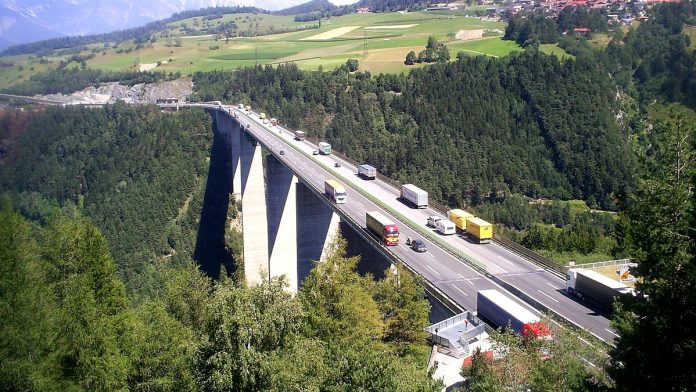Brussels claims a pan-European network of 5G-enabled roadways, stretching hundreds of kilometres, is emerging, as new countries confirm cross-border testing of 5G-enabled driverless cars. The European Commission will provide €50 million for new autonomous driving projects in support of the new 5G roadways.
“This will be the largest set of initiatives worldwide, ensuring Europe’s leading position in 5G connectivity and enabling the digital transformation of the automotive sector,” it said in a statement.
Amid a flurry of announcements at its ‘digital day’ event in Brussels, the EC said the emerging map of ‘5G corridors’ is the largest 5G experiment zone in the world. Tests will be conducted of 5G-enabled driving to ‘level three’, where a car can operate by itself under certain conditions, with a driver present.
New regional agreements have been struck by Bulgaria, Greece and Serbia, and by three provinces spanning the Italian and Austrian border. The first covers 5G tests on roads between Thessaloniki, Sophia and Belgrade; the second concerns a stretch of motorway on the Brenner pass, in the Alps, running between the provinces of Tirol, Südtirol and Trentino, which carries over 60 million vehicles per year.
Meanwhie, Spain and Portugal have also signed an agreement to have two joint corridors between Vigo and Porto and between Evora and Mérida, allowing connected automated driving to be tested across borders.
European countries signed a deal for large-scale testing of connected and automated driving on European motorways at the same event last year.
France, Germany and Luxembourg announced a trial in September last year, running between Luxembourg, Metz and Merzig. Since then, Norway, Finland and Sweden have announced 5G testing on the E8 motorway between Tromsø in Norway and Oulu in Finland, and on the E18 between the three capital cities, Helsinki, Stockholm and Oslo.
The Netherlands and Belgium have said they will start testing 5G-enabled cars on the road between Rotterdam, Antwerp and Eindhoven
The EC said in a statement: “The extension of the network of European cross-border, 5G-enabled corridors covering a significant European territory marks an outstanding development. The EC will continue to support these efforts by facilitating the exchange of best practices and helping to address issues of security, privacy and data governance.”
Momentum is starting to build in Europe around the implementation of 5G technologies. The EC set ambitious targets with its 5G ‘action plan’ in late 2016, and noted the recent decision by member states to allow operation of 5G services in all designated pioneer bands by 2020. Member States have recently moved forward on spectrum by agreeing
Spectrum authorisation procedures have already started in many member states. The UK, set to leave the EU in, received £1.35 billion ($1.9bn) last week for new 3.4 GHz radio spectrum, for use with 5G services, including high-bandwidth IoT-based use cases like autonomous driving.

